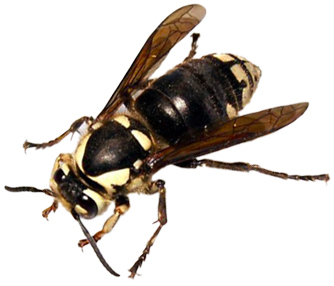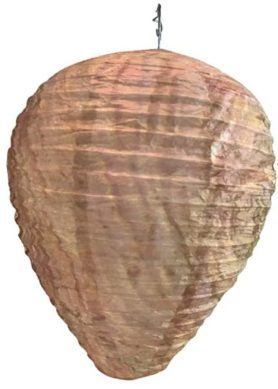Our Services
WASP/HORNET CONTROL IN YARDS AND AROUND HOMES
Wasps and hornets are arthropods belonging to the order called Hymenoptera. Wasps and hornets are beneficial to humans because they help by eating other insects but are only minimally effective pollinators. These pests are especially active during the second half of summer and early fall when the colonies forage for food that will sustain their queens during the winter.
These insects all possess a modified ovipositor that protrudes from the back of the abdomen and acts like a hypodermic needle, injecting a type of protein venom. Stings can be dangerous to those allergic to their venom – although these insects will only sting if they feel they or their nests are in danger.
Wasps and Hornets
There are many different species of hornets and wasps, with new species seemingly arriving every few years. Wasps and hornets have similar hairless bodies. The major difference between wasps and hornets is size and colour.
 wasp
waspWasps
- Size: 1/3 inch to 1 inch long
- Colour: abdomen usually has black and yellow rings
- Nest location: typically live in an aerial nest
- Common types: yellowjackets, paper wasps
 hornet
hornetHornets
- Size: 3/4 inch to 2 inches in length
- Colour: abdomen usually has black and white rings
- Nest location: live in the ground or in an aerial nest
- Common type: boldfaced hornets
PREVENTION TIPS FOR AROUND YOUR HOME
Unfortunately, there isn’t a lot a homeowner can do to deter these pests; if Mother Nature decides your home looks inviting, she just lets herself in.
- Eliminate any food source
Wasps and hornets are attracted to sweet liquids so hummingbird feeders and other feeders (such as the Baltimore Oriole feeder) should be placed away from areas where people frequently gather like decks, gazebos, pool areas, etc. Keep food covered when outdoors - Seal up any tiny openings
Wasps and hornets may seek shelter in tiny openings like cracks. - Avoid strong fragrances
People should avoid wearing strong fragrances - Use plants to repel
Plants such as citronella, thyme and eucalyptus naturally deter insects like wasps and hornets. Growing these plants in your backyard will not only help to keep away the wasp and hornets, they add beauty to your garden. - Wasp traps.
Wasp traps can be purchased from local garden centres or hardware stores to address foraging wasps. A sugar solution is used in the trap to attract them and the trap is constructed in a way that does not allow them to escape. This method deters nest building but, unfortunately, does not eliminate an established wasp nest. - Fake wasp nests.
It is recommended people put them up in the Spring or early summer because they too will deter nest building but are ineffective if a nest has already been constructed.
